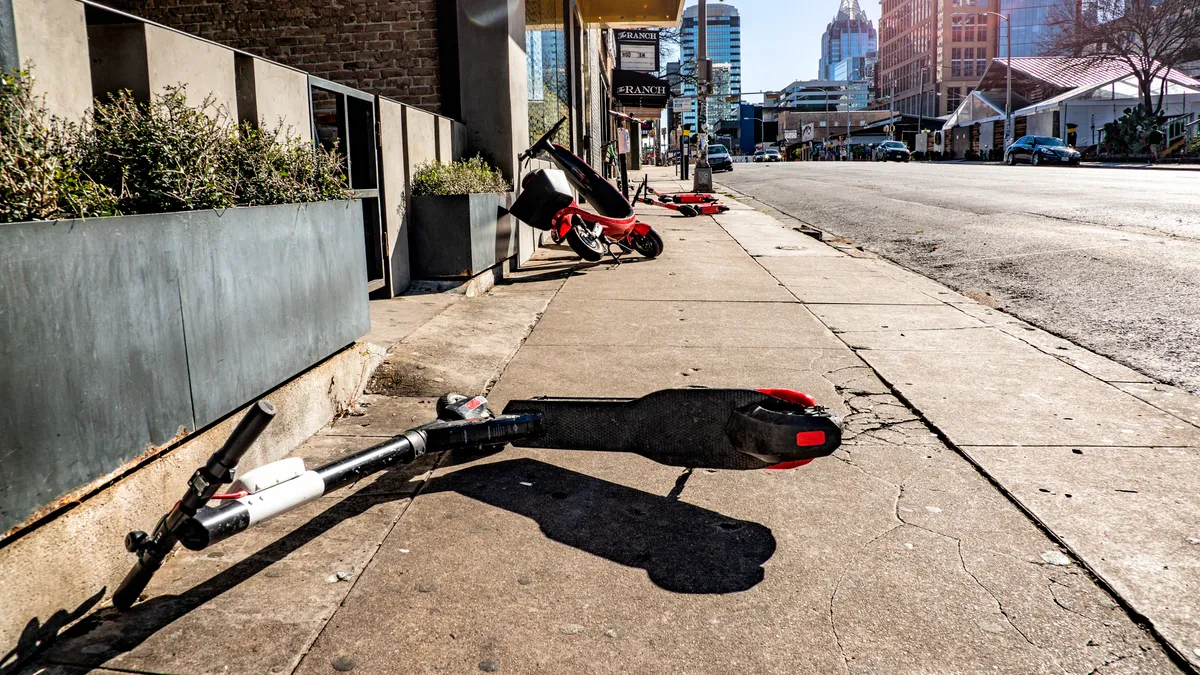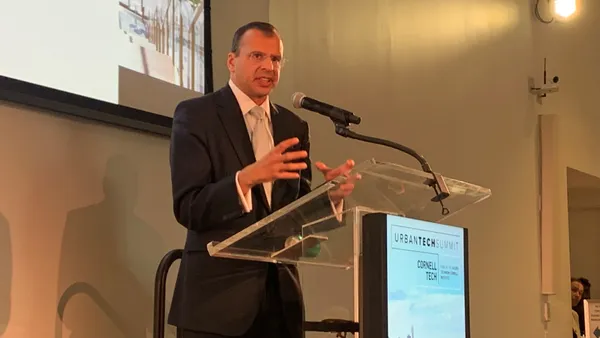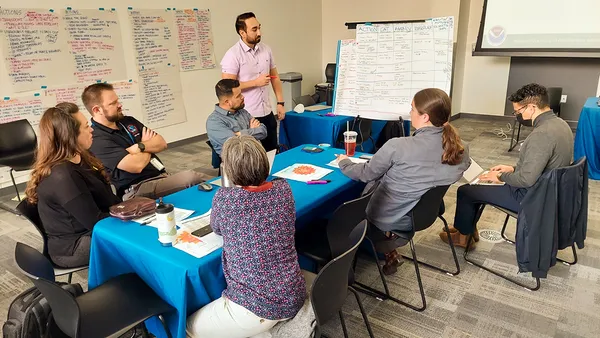Dive Brief:
- Philadelphia has released a report detailing the city's progress on the Philadelphia Resilience Project, the emergency response program Mayor Jim Kenney established in October to combat the opioid crisis. Philadelphia leaders believe this response can serve as a model for other cities experiencing negative impacts from the opioid crisis.
- The project includes seven mission areas that address the opioid crisis at its intersection with other city problems including homelessness, crime and blight. "There's a recognition that opioids have generated other problems in the city," Philadelphia Managing Director Brian Abernathy told Smart Cities Dive. "Some of it is crime rate, poverty level, the number of vacant homes — all those things play into the health of the community."
- A key aspect of the Resilience Project is bringing together 35 city departments and agencies that had all been separately working on elements of the opioid crisis — police, the health department and homeless services, to name a few. "They were all doing good work but they were in their own silos and not necessarily talking to each other," Abernathy said. The new structure allows each department to have insight into what's happening citywide and opens opportunities for collaboration. "This allows folks to act more nimbly than they do in a bureaucracy," Abernathy said.
Dive Insight:
Philadelphia leaders acknowledge that the opioid crisis has impacted their city more acutely than others. Overdose deaths there dropped slightly last year, but still numbered more than 1,100.
"When I talk with [peers] about the opioid crisis in Philadelphia, their eyes get big and they shake heads at the number of overdose deaths here compared to the overall population," Abernathy said. The magnitude of the problem prompted the mayor's executive order and city leaders' change of tack.
The initial efforts focused on parts of the city deemed hardest hit by opioids — the Kensington and Fairhill neighborhoods — but the principles apply to efforts citywide. At the same time, those communities are home to "folks who have lived there their entire lives and have never enjoyed the success and prosperity of surrounding communities," Abernathy said. Therefore, the Resilience Project is steeped in equity and improving quality of life for Kensington and Fairhill residents.
The city had already closed two of the four encampments in Kensington that were havens for drug use, crime and dangerous conditions, and clearing the remaining two encampments was a top goal. Since clearing, those locations have not been re-encamped.
A key focal area was reducing criminal activity in the community and improving citizens' safety. The project included a "Safe Routes to School" program with six local schools to improve safety for children. It involved installing additional surveillance cameras and 1,000 LED streetlights, in addition to a warrant initiative resulting in 180 arrests.
Another focal area was reducing the number of unsheltered individuals on the street in Kensington; that number spiked to 700 last summer. Through the Resilience Project, the city expanded emergency and temporary housing as well as long-term housing opportunities for those most in need. The number of people on the street in Kensington has halved since last summer.
Other priorities included increasing access to addiction and recovery options, reducing the spread of infectious disease and increasing access to community resources to improve Kensington residents' economic standing. Leaders knew the holistic, collaborative approach to combating the opioid crisis was new territory but worth trying.
"We told folks think about this in a different way than government has ever tackled it. If it doesn't work, we'll change it and make it work," Philadelphia First Deputy Managing Director Tumar Alexander told Smart Cities Dive. "We received latitude from superiors who said don't be afraid to try new things... [and] don't be afraid to fail."
Part of the concept is accountability, Abernathy said. "If we fail, we want to fail fast — understand the challenges and realign ourselves." He added that city leaders and employees should expect to take some criticism, but that comes with the territory.
City leaders seeking better strategies for addressing the opioid crisis should encourage better listening not just among government employees and across departments, but also should listen better to citizens they're trying to serve, he said.
"The last piece is focus on the little wins. This is a long, hard slog to get this done... It's easy to collapse under the weight of this," Abernathy said. He recommends that team members remind each other of the team's successes and help each other stay motivated.
"Recognize the impact you're having on a person in treatment. They're reconnected with their family. Kids are experiencing less trauma if you allow them a corridor to walk to school in a safe and secure way," he said.
The mayor has committed to extending the executive order for another six months and helping to fund the Resilience Project.












